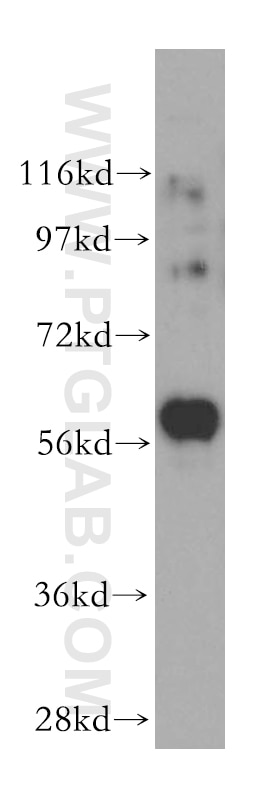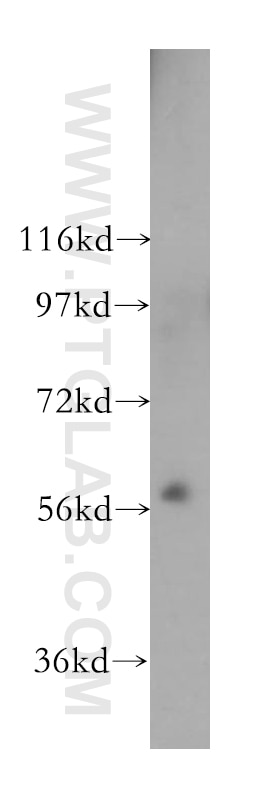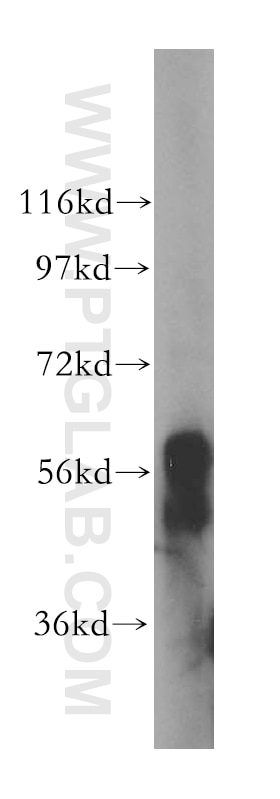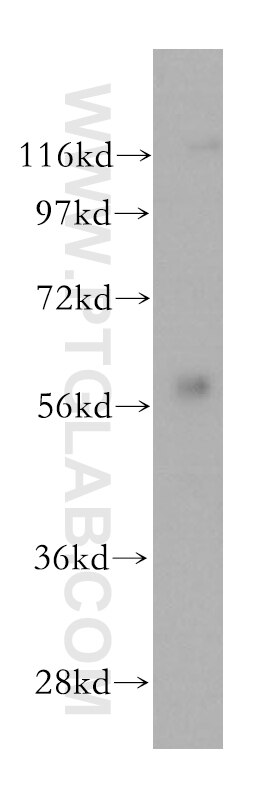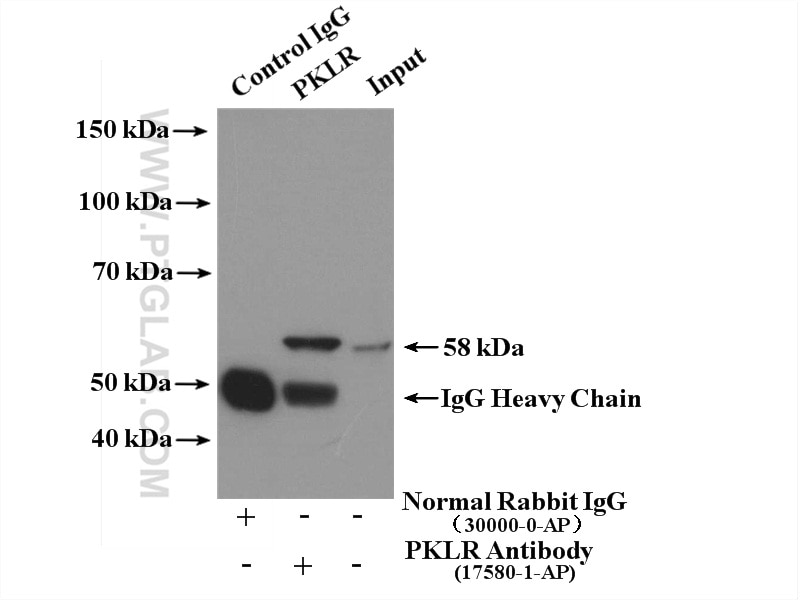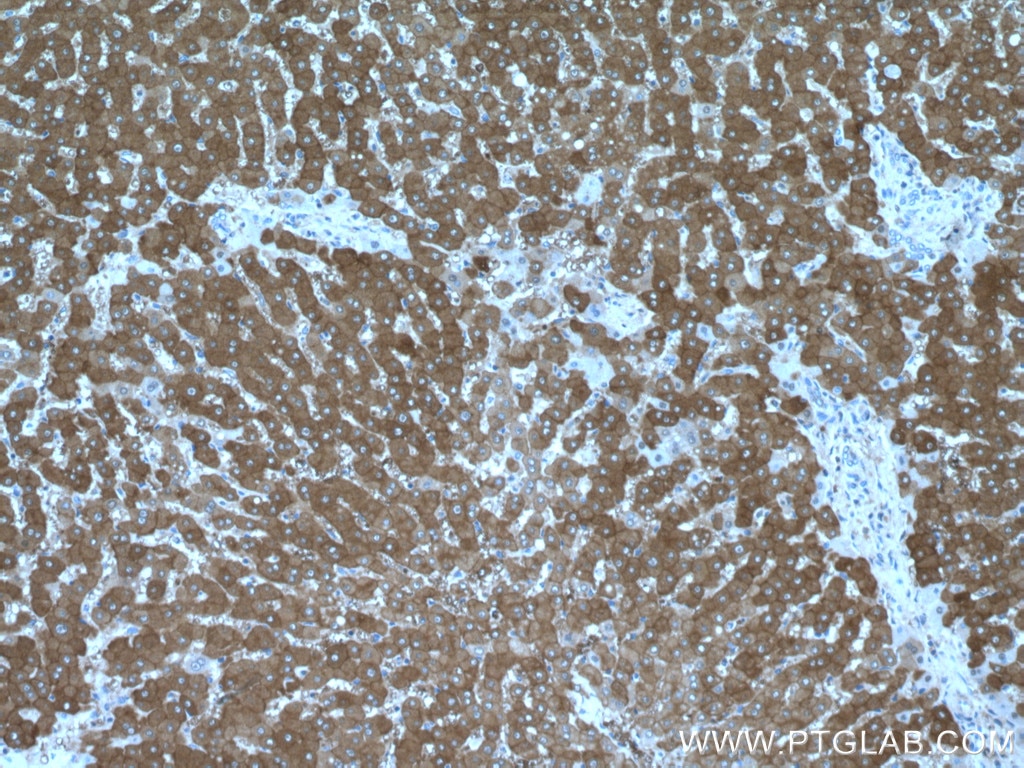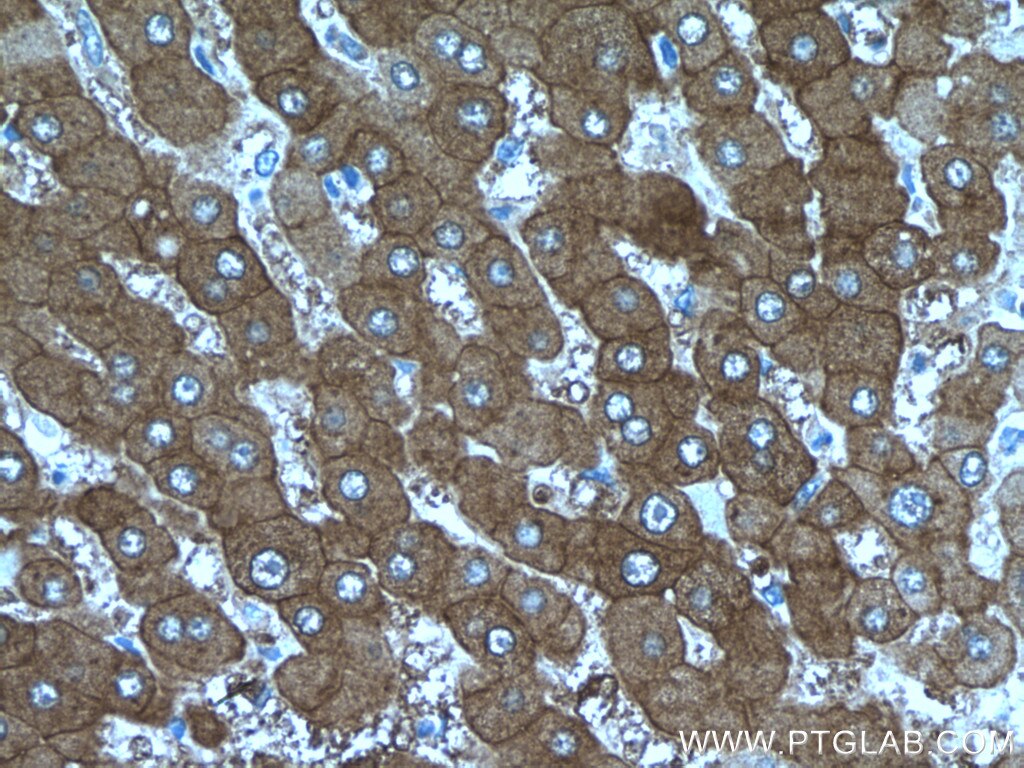Validation Data Gallery
Tested Applications
| Positive WB detected in | K-562 cells, mouse kidney tissue, mouse liver tissue, NIH/3T3 cells |
| Positive IP detected in | K-562 cells |
| Positive IHC detected in | human liver tissue Note: suggested antigen retrieval with TE buffer pH 9.0; (*) Alternatively, antigen retrieval may be performed with citrate buffer pH 6.0 |
Recommended dilution
| Application | Dilution |
|---|---|
| Western Blot (WB) | WB : 1:500-1:2400 |
| Immunoprecipitation (IP) | IP : 0.5-4.0 ug for 1.0-3.0 mg of total protein lysate |
| Immunohistochemistry (IHC) | IHC : 1:50-1:500 |
| It is recommended that this reagent should be titrated in each testing system to obtain optimal results. | |
| Sample-dependent, Check data in validation data gallery. | |
Published Applications
| WB | See 1 publications below |
Product Information
17580-1-AP targets PKLR in WB, IHC, IP, ELISA applications and shows reactivity with human, mouse, rat samples.
| Tested Reactivity | human, mouse, rat |
| Cited Reactivity | human |
| Host / Isotype | Rabbit / IgG |
| Class | Polyclonal |
| Type | Antibody |
| Immunogen | PKLR fusion protein Ag11096 相同性解析による交差性が予測される生物種 |
| Full Name | pyruvate kinase, liver and RBC |
| Calculated molecular weight | 574 aa, 62 kDa, 585 aa, 63 kDa |
| Observed molecular weight | 58-62 kDa |
| GenBank accession number | BC025737 |
| Gene Symbol | PKLR |
| Gene ID (NCBI) | 5313 |
| RRID | AB_2268201 |
| Conjugate | Unconjugated |
| Form | Liquid |
| Purification Method | Antigen affinity purification |
| UNIPROT ID | P30613 |
| Storage Buffer | PBS with 0.02% sodium azide and 50% glycerol , pH 7.3 |
| Storage Conditions | Store at -20°C. Stable for one year after shipment. Aliquoting is unnecessary for -20oC storage. |
Background Information
PKLR(Pyruvate kinase isozymes R/L) is also named as PK1,PKL,which is a glycolytic enzyme that catalyzes the transphosphorylation from phosphoenolpyruvate (PEP) to ADP, yielding pyruvate and ATP. It is the last step of the glycolytic pathway and is essentially irreversible.It belongs to the pyruvate kinase family and There are 4 isozymes of pyruvate kinase in mammals: L, R, M1 and M2. L type is major isozyme in the liver, R is found in red cells, M1 is the main form in muscle, heart and brain, and M2 is found in early fetal tissues.Defects in PKLR are the cause of pyruvate kinase hyperactivity (PKHYP) and pyruvate kinase deficiency of red cells (PKRD).It can form a homotetramer(PMID:11960989).
Protocols
| Product Specific Protocols | |
|---|---|
| WB protocol for PKLR antibody 17580-1-AP | Download protocol |
| IHC protocol for PKLR antibody 17580-1-AP | Download protocol |
| IP protocol for PKLR antibody 17580-1-AP | Download protocol |
| Standard Protocols | |
|---|---|
| Click here to view our Standard Protocols |
Publications
| Species | Application | Title |
|---|---|---|
Nat Commun Thermal proteome profiling reveals fructose-1,6-bisphosphate as a phosphate donor to activate phosphoglycerate mutase 1 |
